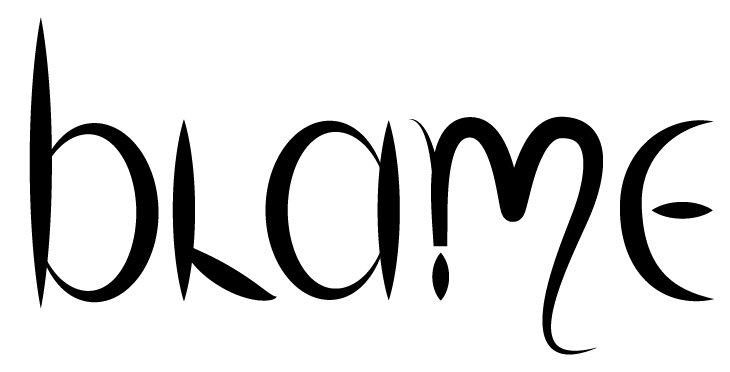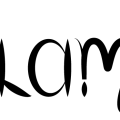
`Guilty until proven innocent?
In the aftermath of suicide, most survivors discuss their grief at some point. (If you haven’t gotten that far and are reading this post, that’s ok.) Some discuss anger and feelings of betrayal. The guilty feelings, that I assume some feel, are swept to the darkest, furthermost corners of our minds, never to be spoken. The place that you only allow yourself to go occasionally, because the thought is too painful for you to visit. The fear that saying it out loud will confirm its truth. You blame yourself, internalizing every thought, and never allowing yourself to speak your most horrific introspection. You know it to be true no matter what others say. But when you muster the courage for those words to come off your lips, those around ring out in a chorus of “NO! It’s not your fault. You can’t possibly think it’s your fault.” It’s like saying out loud how fat you think you look, and everyone around compliments you on your appearance to diminish your self-deprecating feelings. But, what happens when you say out loud that you look fat, and someone says “Yeah, and I can see your jelly rolls a mile away?” You believe it. Immediately and indefinitely. They spoke the truth and held nothing back. They weren’t afraid to say the truth out loud because the words were so obvious. You already knew it to be true but tried to convince yourself otherwise.
So, let’s talk about why I feel guilty. The secrecy of the situation yields a power over me that I’m ready to leave behind. These are my worst moments at their finest. During the aftermath of my grandmother’s death, my grandfather was lost. His soulmate of 60 years was gone, and he was desperately seeking to fill that void. He found another woman, and I couldn’t have reacted worse. The day he told me he was seeing another woman, I cried for hours. I cried when he told me. I cried myself to sleep. I cried that morning sitting in the kitchen while he cooked breakfast. I told him that if she attended family functions, I wouldn’t. I carefully constructed our conversations, so she wouldn’t come up. When she did, I stopped talking. I would call him when he was at her house and monologue for 30 minutes, so he couldn’t spend time with her. I reminded him of my grandmother often, and the love they shared for years on end. It was her or me, bottom line. I was horrible to a man that was heartbroken. Two months before my uncle took his life, he came to my apartment and asked for money. I was livid. My hard-earned money was not going to enable his addiction issues. I literally gave him change out of a pickle jar, so he would know how low I thought of the situation. My husband sat at the table in silence. After he left, I complained about his actions. I was cruel. There is nothing I can do to change what I have done. Nothing.
So to clear the air, yes – I feel guilty. I’ve felt an enormous, crushing amount of guilt since I got that phone call the night of July 16, 2017, and it has continued. If I had a time machine and I could go back to the beginning of 2017, I would do so many things differently. So, so many things. I wish I could erase that year from the archives and pretend like it never existed. I would remind myself of the compassion I know I’m capable of. I would be remiss if I didn’t say that guilt has affected my actions since then. I find myself constantly feeling sorry for others and knowing the amount of guilt they will live with, if they are anything like me. I’m not looking for pity or sympathy. I want to eliminate the power that this thought has held over me for months on end. I want to share with others who may be in the same position that I am.
My feelings of guilt have been internalized for over a year and a half. It wasn’t until I was publicly blamed for their deaths did I speak my horrific truth for the first time. Being blamed for another’s suicide is one of the cruelest, most vindictive comments a person can make. You already have blamed yourself, why do you need the reminder? It shows the true evil that lies within the depths of that person’s soul. I waited for other family members to start turning on me when they realized the truth. It was my fault. However, I must say thank you to my accusers. Even in their hate and attempts to destroy my emotional stability, it gave me a platform to take the first step in admitting my truth to the world. It gave me the opportunity to breathe life into my worst skeleton and for that I’m grateful.
After my public shaming on social media, my initial reaction was intense, uncontrolled anger. You know, the kind where the room spins, and you don’t know what’s happening. How dare they? What gives them the right? Who would use social media as a platform to point the finger? Are you too scared to say it to my face? Is that why you refuse to look me in my eyes? Are the comments about my guilt true? Probably. Are they hurtful? Absolutely.
But then, I laughed. It’s clear that blame and guilt is the only tactic of power these individuals have left. While I continue to live my life to honor my grandfather’s and uncle’s memory in the best way that I know how, I was burdened with the weight of this secret. I realized that it’s easy to blame someone who was close to the situation, who was close to the person who died. I would choose to be the person who was blamed for their death, than the person pointing the finger. I should be blamed. I was one of the few people close enough to the situation to know the full truth, and I can see how easy it is to point the finger. Because let’s be honest, I’ve already done it to myself.
Then, the crippling grief set in. Was this the end goal for my public shaming? Is a congratulatory party in order for placing the blame on someone else? As I have worked through my emotions, I realized that other survivors must deal with this, but choose not to speak the words. It’s scary to say, write, or discuss, because there’s a chance that someone will confirm the truth you already know. Since my dirty laundry has already been aired out, I’ll volunteer for target practice. I want other survivors to feel comfortable enough to talk about even the taboo parts of suicide. The acceptance of guilt is overwhelming. Possibly more overwhelming than the initial loss. Somehow, you think that you could have changed the end to the story. I’m not talking about the bargaining phase of grief. I’m talking about the hours where you sit and stare at the ceiling replaying every conversation, thinking of an infinite amount of ways to handle the situation that were better than the way it actually played out.
Even though I continue to fight with feelings of guilt, here’s what I do not feel guilty about. I spent every possible moment I could with my grandfather and my uncle. I loved them fiercely, and all of my actions, comments, and motivations were made out of the love that I feel for them. Whether they were right or wrong at the time, all of my actions were directed with their best interest in mind. I will never feel guilty for missing out on time I could have spent with them, because I was there. I was there every birthday, Christmas, Easter, Saturday card night, and Sunday dinner possible. Whether I was frustrated with their actions or decisions, I always said I love you before the conversation ended, even if it was through gritted teeth or tears. I refuse to feel guilty for being close enough to the situation to take the blame. I will always choose to take the blame if it avoids others from feeling what I feel. I wouldn’t wish this on anyone, not even those who have called me out. Deep down, I know my grandfather and uncle never once asked themselves if I would be there during a difficult time. It’s not much as consolation, but something is better than nothing.
If you’re in the same situation as me, you aren’t alone. Unfortunately, there will be people in your story that blame you. Let them talk. Let them provide you an outlet to talk about your truth, if you’re ready. You made it through yesterday, and I encourage you with everything I have to fight for today. Fight for the joy that your loved ones would want you to feel. Fight for the ability to remember that your actions were based out of love and not jealous or selfish ambitions. Fight for their memory. Fight for the life they should be living right now. Know that you are truly not guilty for anything that happened, and I’m not saying that to make you feel better. They made the decision, not you. You were fighting for their life, just as you are fighting for their memory now.
*Story written by Kim Demirjian. It was written exclusively for www.oursideofsuicide.com.




Thank you.
There are many significant and helpful points i this article. Thank you. I also found it a bit confusing as it seems that two deaths occurred but don’t understand if grandfather also died? If so was it a suicide also?
Her Grandfather and Uncle both committed suicide during the same year.
This article hit home. I haven’t been outwardly blamed for my sister’s suicide but I feel responsible. I was on the phone with my sister for over 2-1/2 hours and into the night before she took her life. I was analyzing her situation and giving a rationale side to a very traumatic even happening in her life. I should’ve shown her compassion and love. Why didn’t I? What is wrong with me that this very basic compassion was missing? I had no idea she was contemplating suicide but that doesn’t take away the conversations that were so wrong. Words do matter. It’s so painful to live with as you perfectly describe, the furthermost dark corners of our lives that we keep hidden. There are times when I just want someone to come out and just say it!! Blame me! Because I already feel responsible and blaming me will affirm the disgust, shame and guilt I carry with me.
Thank you for your honesty in this article. It speaks to so many sides, ugly sides, of living in the aftermath of the suicide of someone you loved dearly. Thank you for speaking about something that’s always there but not mentioned. Thank you for helping me see I’m not the only one who feels this way
My son jumped to his death on my 54th birthday, and all I feel is sadness and crippling guilt. Rural Alaska offers nothing for healing, in fact, this is a very hateful and judge mental place…it is unreal…I am sorry for your loss, but my family and I realize that we are all in this on our own because in America right now, no one cares for losers like us. We struggle every day, yet people still ask if our son was addicted to drugs…no…I reach out to nothing in this hateful community that blames parents for misfortune. But, most Americans blame parents when things go wrong.
Thank you for this. My thirty-right year old daughter died by suicide in Aug, 2015. Living with guilt has been my punishment.
I don’t understand if your grandpa committed suicide or not?